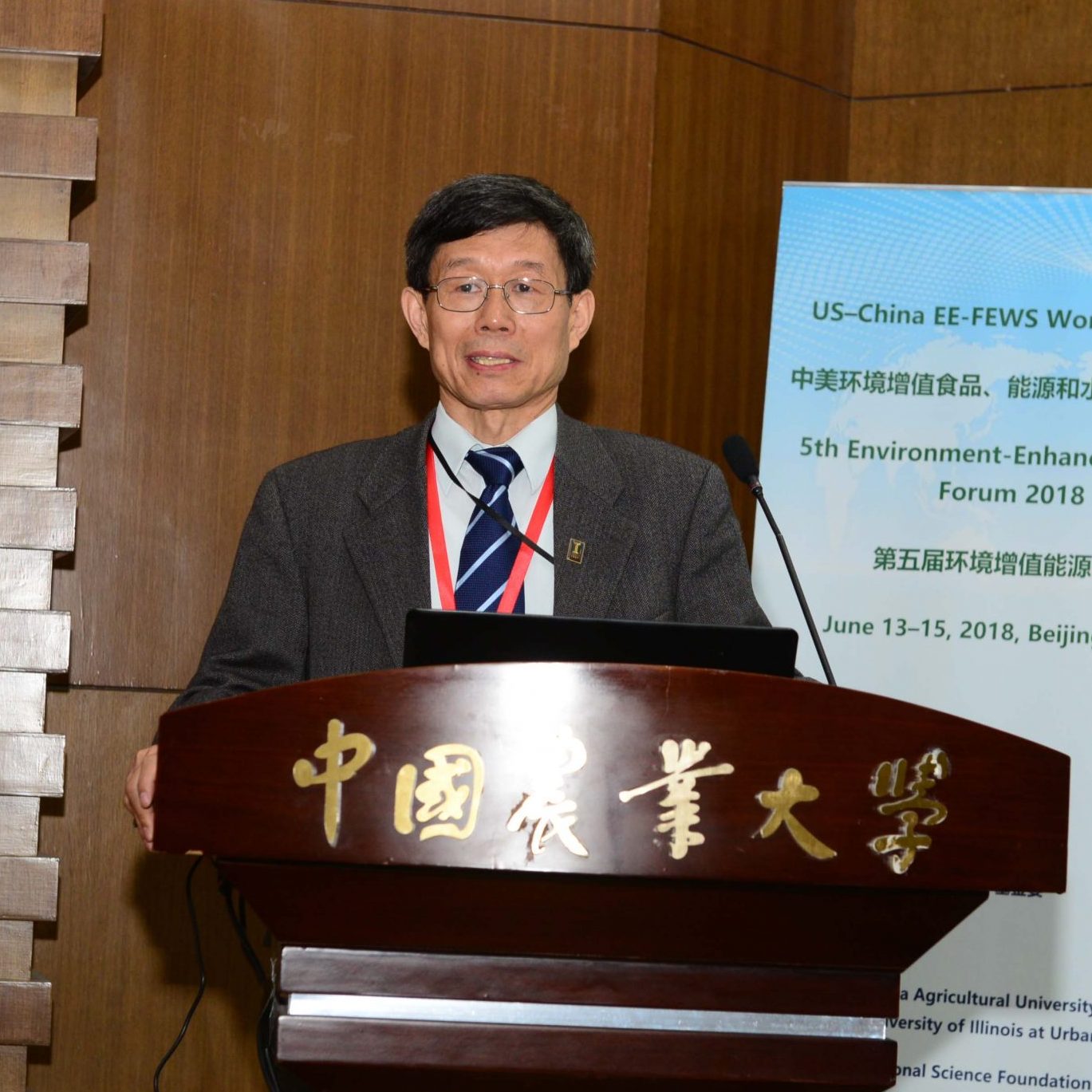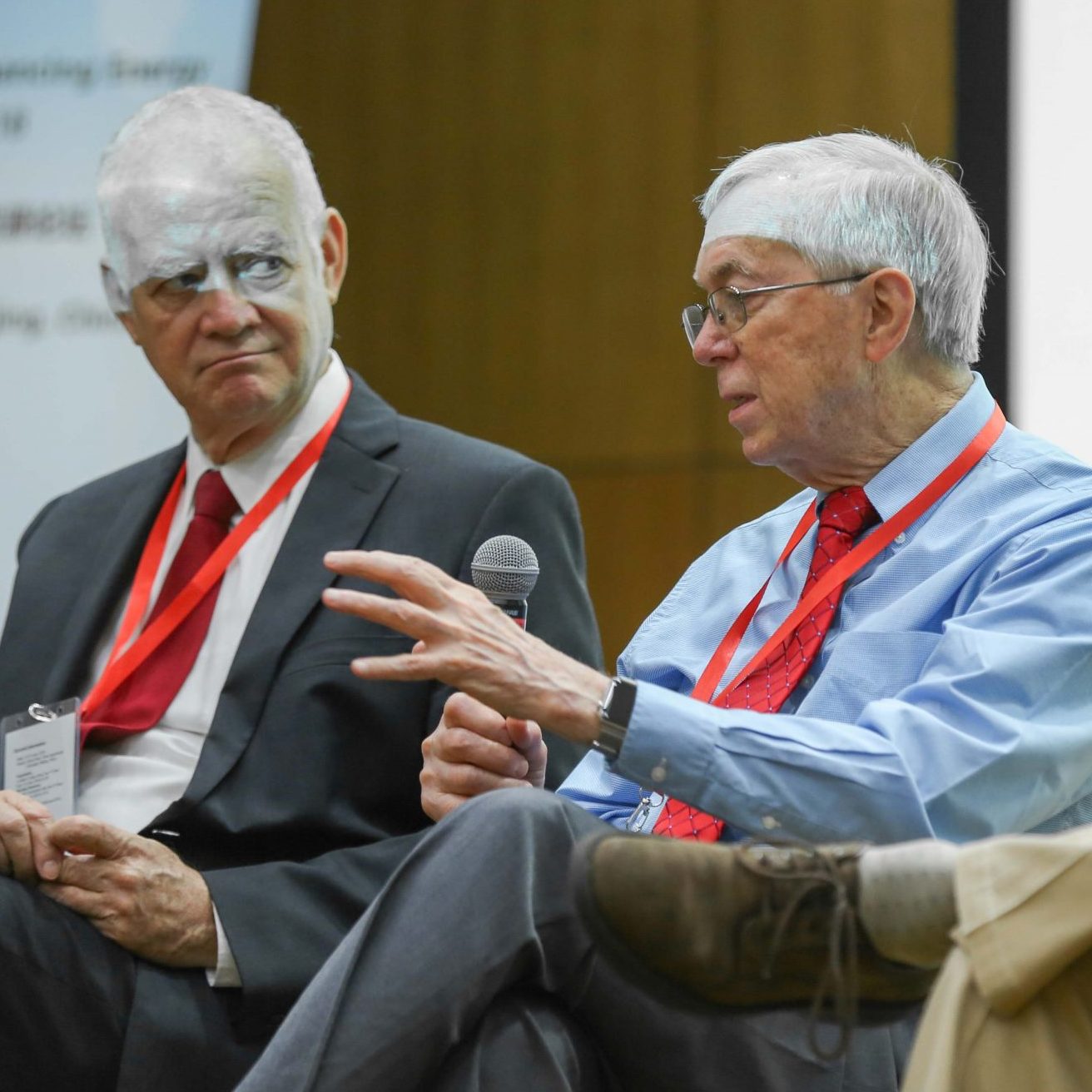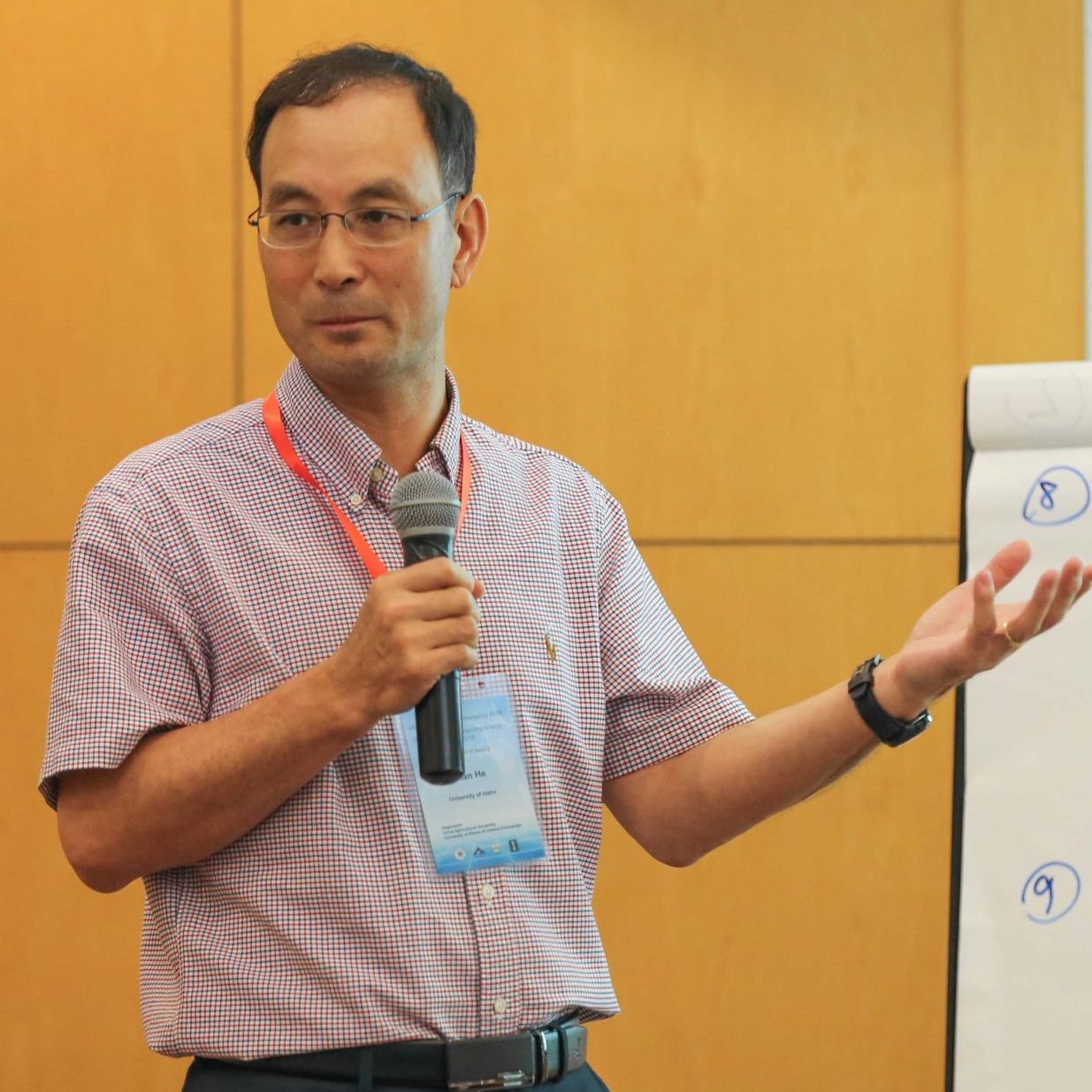
E2-E team awarded research grant from USDA to convert biowaste into pavement
The University of Illlinois E2-E research team received a $2.5 million grant for a project to explore conversion of food waste and swine manure into pavement binder and transportation fuels. The proposal, “Pave the way: From Organic Waste to Renewable Roads With Advanced Resource Recovery Delineation (FORWARD),” is funded through USDA’s National Institute of Food and Agriculture’s (NIFA) Bioproduct Pilot Program, which supports research and development of value-added products from agricultural commodities to enhance a circular bioeconomy.
Information concerning this project can be found here.

E2-E team awarded research grant from the Department of Energy
The UIUC E2-E lab was recently awarded a grant that focus on research at the heart of the waste-to-energy nexus. This project aims to convert sewage sludge into biocrude oil using hydrothermal liquefaction technology and that subsequently refine to jet fuel. The title, timeline, and collaborators of the funded projects can be found below:
Clean water, sustainable aviation fuel and renewable diesel production from wastewater. 2022-2026. $3,999,596. Collaborating Institutions: MicroBio Engineering, California Polytech University, PNNL.

E2-E team awarded research grant from the U.S. Army
The University of Illinois E2-E research team was awarded a project aimed at ameliorating problems associated with harmful algal blooms. This project is conducted in conjunction with the Illinois Sustainable Technology Center. Information concerning the project (title, duration, collaborators) can be found below:
US Army ERDC: Improvements in Harmful Algal Bloom Biomass Pretreatment, Hydrothermal Conversion and Upgradation to Finished Biofuel Products. Subcontract with CERL. 2020-2023. $1,172,000. Collaborating Institutions: Illinois Sustainable Technology Center, UIUC.

E2-E team awarded research grant from National Science Foundation
The Environment-Enhancing Energy research team was awarded a grant in collaboration with the Civil and Environmental Engineering Department of UIUC from the National Science Foundation. The project hones in on developing modeling systems within the field of food, energy, and water within arid climate regions. Information regarding the title of the project, the duration, and the collaborators can be found below:
U.S.-China INFEWS: An Integrated Technology-Environment-Economic Modeling Platform for FEW Systems in Arid Regions. 2018-2023. $500,000. Collaborating Institutions: Civil and Environmental Engineering UIUC.

E2-E research team awarded two grants from the Department of Energy Bioenergy Technology Office
The UIUC E2-E lab was recently awarded a grant that focus on research at the heart of the waste-to-energy nexus. Specifically, this project email to convert food waste and algae into biocrude oil using hydrothermal liquefaction technology and that subsequently refine the crude oil into liquid fuels. The title, timeline, and collaborators of the funded projects can be found below:
Synergistic Thermo-Microbial-Electrochemical (T-MEC) Approach for Drop-In Fuel Production from Wet Waste. 2021-2024. $1,809,732. Collaborating Institutions: Princeton University, PNNL.
Postdoctoral Research Associate Position Announcement
The Department of Agricultural and Biological Engineering (ABE) at the University of Illinois at Urbana-Champaign seeks a Postdoctoral Research Associate to carry out research projects in the area of hydrothermal liquefaction (HTL) of biowaste and upgrading the HTL biocrude oil into transportation fuel. This is a DOE-funded project themed on the production of jet fuel from waste streams. Qualifications of a successful candidate include an earned Ph.D. in an engineering discipline (including agricultural, biological, chemical, environmental, mechanical) or a related field such as chemistry and materials science. Previous experience with thermochemical conversion of biomass, catalysis, and fuel upgrading (such as hydrogenolysis, hydrodeoxygenation, hydrogenation), is preferred. The successful candidate will work with a group of researchers on the theme of environment-enhancing energy, including HTL, upgrading the HTL biocrude via bio-chemo-thermal means such as catalytic hydrotreating, and recovering nutrients and minerals from the post-HTL wastewater.
This position is a 12-month appointment with renewal up to three years depending on performance. Starting date is January 1, 2022 or until the position is filled. The minimum annual salary will be $48,000. The salary will be commensurate with experience. This position will also be benefits-eligible and offers 24 paid vacation days annually; any unused balance is noncompensable upon separation.
This position is available now and will remain available until it is filled. Qualified candidates should submit their application by email, including (1) cover letter, (2) full CV, (3) a brief statement of research (two pages), and (4) contact information for three references to Professor Yuanhui Zhang, Phone: 217-333-2693; Email: yzhang1@illinois.edu.

Jamison Watson, ABE doctoral student, receives Schmidt Science Fellowship
Jamison Watson, doctoral student in the Department of Agricultural and Biological Engineering (ABE) at the University of Illinois working in the lab of Dr. Yuanhui Zhang, received a Schmidt Science Fellowship. He is one of 28 awardees in the 2021 cohort of fellows, representing 13 nationalities and multiple research fields. Jamison plans to join the lab of Dr. Yuriy Roman at the Massachussets Institute of Technology to work on developing an integrated thermochemical-electrochemical biorefinery for the conversion of recalcitrant waste compounds into liquid fuels and value-added products.
See the full report released by the University of Illinois here.

US–China EE-FEWS Workshop 2018
This workshop is targeted to contribute significant advancements in sharing and advancing knowledge of the following: utilizing readily available biowaste and biomass inputs; improving efficiency for biowaste/biomass conversion (including thermochemical, biochemical and biological); demonstrating that nutrients in the original biowaste can be efficiently separated in the conversion process and reused; and establishing that the chemicals of environmental concern in the original biowaste can be substantially removed/converted through conversion and wastewater treatment processes.
This is the 5th Environment-Enhancing Energy (E2-Energy) Forum.

US–China EE-FEWS Workshop 2016
The purposes of this workshop are to report the emerging and future E2 Energy technologies for next generation hydrocarbon liquid fuels with a total net-zero, or negative carbon emission during their life-cycles; and to promote collaborations among, and invest in the academia, industry and government agencies jointly or independently, in the R&D of E2 Energy area.
This is the 4th E2-Energy Forum.

US–China EE-FEWS Workshop 2010
The purposes of this workwhop are to (1) Identify emerging and future Environment-Enhancing Energy technologies for next generation hydrocarbon liquid fuels with a total net-zero, or negative carbon emission during their life-cycles; and (2) Promote collaboration among, and invest in the academia, industry and government agencies between China and U.S, jointly or independently, in the R&D of Environment-Enhancing Energy area.
This is the 2010 E2-Energy Forum.